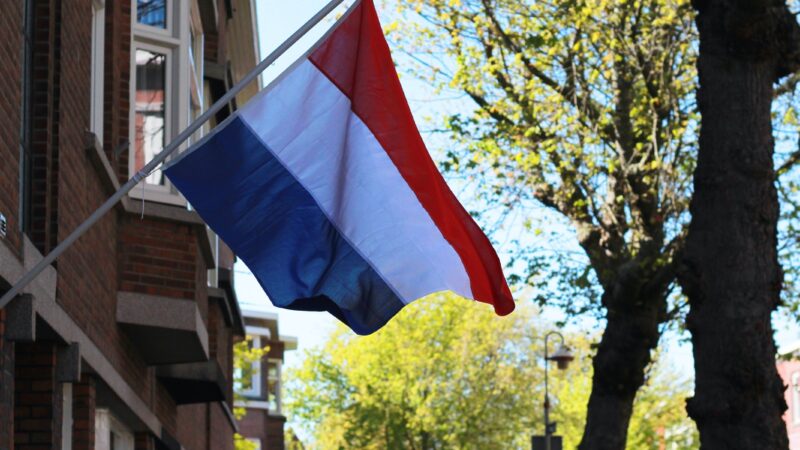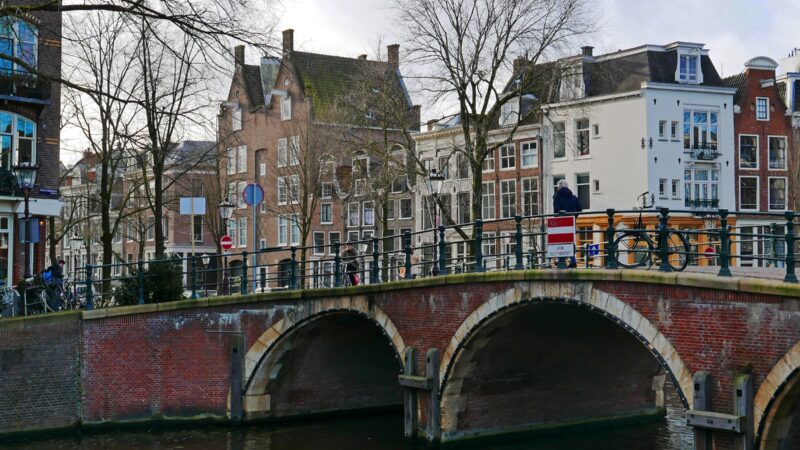Breakfast with Thierry Baudet (Part II)
In mid-July, the Mallard was fortunate to have breakfast with Thierry Baudet, leader of the Dutch ‘Forum for Democracy’ (FVD) party in the Netherlands. We discussed his views on manufactured consent, immigration, CBDC, and climate change; and his new book ‘The Covid Conspiracy’. Part I can be read here.
TM: So who made the decision then?
TB: I cannot point at a single desk. That is not how things work. My point is that all mainstream media and government agencies are intertwined with an international group of people who meet in Davos and the EU and New York. They are in turn influenced by secret services, multinational corporations, huge tech and pharmaceutical companies. That is where the scenarios are planned.
Before Covid, between eight and ten massive pandemic simulations were ran. There was a huge simulation called Event 201 which involved the John Hopkins Center, the Bill and Melinda Gates Foundation and the CIA. They ran scenarios on what to do if a corona virus struck. This was all just before a massive corona virus did strike. Through these scenario plannings, governments were already given their instructions on how to respond. Then everything simply had to be coordinated in lock step.
TM: Do you not think we have to prepare for things?
TB: We have to prepare for things but the irrationality of the plans points to different interests, not to the genuine interests of the public. So if we are incapable of seeing the scenarios created for us by the big players in the background, then our democracies are in danger.
TM: So Covid has demonstrated that our democracy does not work?
TB: The processes we thought we had in place to make rational decisions are void.
TM: Void or captured?
TB: Captured is better. There are mechanisms in place which create the impression of consent. You can generate a narrative which suggests that there is a consensus.
By contrast, when you give people an actual question and a choice, in a referendum for instance, you admit that there is a choice. That is why the system is so opposed to referendums, because the very principle of a referendum implies a choice. At that moment, but not before, people will start to realise there actually is a choice.
TM: Are you not worried that too many referendums will cause apathy?
TB: No, I think it will increase turnout, ownership, responsible citizenship. What puts people off is when they feel that nothing matters. It is just another asshole in a grey suit.
TM: Why do you think that elected officials are unwilling to make the changes they promise? In Britain, for example, the Conservatives have been promising to reduce immigration for decades, and yet we have seen an exponential increase.
TB: The reason is that they are unwilling to uproot the established powers which desire these things. immigration is in the interest of real estate owners. It is in the interest of big corporations and the worldwide globalist political establishment which wishes to do away with national identities. There are very, very strong powers in the background that push for these policies. If you push against them, the entire system turns against you.
But there is also a cynical element. Politicians can be unwilling to solve problems because their business is to be there when there are problems. Covid provided a rare opportunity for us, because it showed what happens when you actually go against the current. Trump experienced the same thing. The entire fabric of society will turn against you. It’s a price which the Conservatards are not willing to pay, but the long-term cost of that is losing your country.
TM: Depressing?
TB: If you put your faith in established politics then, yes. But if you put your faith in choosing a free life and siding with the alternative, then things can be better. There is a huge reservoir of sensible, normal people who can see it and are willing to oppose it.
TM: Let’s talk about your book.
TB: With every crisis, the answer from politicians is ‘more centralisation’ and ‘more internationalisation’, because we are stuck with this globalist elite which pulls the strings and works hand-in-hand with big corporations and international politicians. Big corporations help politicians win elections. These politicians then give multinational corporations legal immunity and tax breaks. We do not have a free-market or a capitalist system, we live in an age of corporatism. If they make a mistake and something goes wrong, they get a bail-out from taxpayers. It is very unfair to the normal person.
TM: You said earlier that you wanted a Swiss style direct democracy. Do you think that Switzerland governs itself well?
TB: No, simply having a better system of government itself is not enough. It is not a panacea. Switzerland is a lot better off than most of the other countries of Europe, but there are still many problems with it. It is a very interesting country because it is a meeting point for the globalist elite. They need some cafés around the world where they can do business safely, and Switzerland is one of them. Dubai, Singapore, and Iceland are perhaps some other examples. That is why I think Switzerland will probably continue to be all right for the coming decades. The country was not, however, able to escape immigration, climate policies, CBDCs, etc.
TM: CBDCs?
TB: In 2008, it was effectively made clear that the dollar was dead. It would only be a matter of time before the US Dollar would lose its global dominance and the US would lose a massive instrument for foreign policy. People started to think about what to replace it with. They believed that they had to re-invent money. I think that this has resulted in the shift to Central Bank Digital, Currencies, where money is not really a store of value but instead is a coupon. It is issued by the government and can be withdrawn by the government.
CBDC is the government taking full control of the financial world. The lack of any physical component to money means that you cannot take action to survive inflation. Because CBDC is digital, it is also much easier to manipulate and control. It can be set up so that you as an individual can spend it only on certain things within a fixed distance from your house. CBDC is also completely non-fungible, which means it is completely unique to you. It makes it much easier for governments to track and control you. I spoke about it in my book, where I referred to it as the ‘Death Star’ of liberty. It is a slave currency.
TM: That links back to what you were saying earlier, there is nowhere to run. You cannot even escape that if money is phased out.
TB: Exactly. You can either oppose it politically or you can set up your own parallel society. But it is very difficult to oppose generally. That is why we are working on setting up our own blockchain-based trading system.
TM: So, are you not a fan of crypto currency?
TB: I am a fan of decentralised blockchains. I’m not sure if Bitcoin was created by secret services to pave the way for CBDC, or if it actually maybe was someone working on CBDC and decided to launch something to oppose it, that is also possible. The complete lack of sound arguments for introducing CBDC is really surprising.
TM: What are the arguments of its proponents?
TB: That CBDC provides more credit options to the poor because the government can guarantee that their bank accounts remain open. Another is that it increases transparency and reduces the ability of people to launder money. So, the offer of CBDC is that the state gets complete control over your ability to live and spend money, and in return you get potentially less money laundering. Maybe they aren’t going to do it today or tomorrow, but in, say, five years, some crisis hits, and they suddenly claim a moral obligation to do something about it and CBDC becomes a huge problem for everyday normal people.
To be continued…










Breakfast with Thierry Baudet (Part III)
In mid-July, the Mallard was fortunate to have breakfast with Thierry Baudet, leader of the Dutch ‘Forum for Democracy’ (FVD) party in the Netherlands. We discussed his views on manufactured consent, immigration, CBDC, and climate change; and his new book ‘The Covid Conspiracy’. Part II can be read here.
TM: Why do you think that your party is allowed to exist?
TB: Well, they are currently trying to pass a law to make it possible to forbid it. The Dutch Secret Service published a report about undermining of public faith in established institutions. They call it ‘anti-institutional extremism’. They claim that it occurs when a narrative is created which undermines public trust in institutions. They claim that it is dangerous for democracy. They then claim that that means it should be able to ban any political party which might so undermine trust.
TM: And that just happens to be you?
TB: Yes, parties that disagree with the Covid narrative, parties which might have sympathy for Russia, parties who do not agree with mass immigration. It shows that we are slouching towards totalitarianism. There is one single allowed approach to all issues and there is no room for difference of opinion.
TM: Do you think a party like yours might spring up in the UK?
TB: I don’t know. Your political system is extremely difficult to penetrate for small or fringe parties. It is a general trend in Europe, and probably also in the US, that you are not allowed to doubt the underlying assumptions anymore. Go back to the 1960s and the Vietnam war: then, there were people arguing in America about fighting communism abroad. Nowadays, every politician just agrees that ‘something must be done’ about Russia/climate Change/refugees etc. There is no public discussion allowed. They want militant democracies.
TM: What do you feel are the other differences between FVD and other European right-wing parties?
TB: First, we are much more radical. The AfD, for instance, does not want to leave the EU.
Second, we are the only group to create a social and economic framework for our members. This is not something that we have seen with other movements in Europe, we are the most progressive from that point of view.
Third, we embrace aesthetics and culture. We think that what we offer instead of the other parties is the Western tradition. We talk a lot about beauty, music and traditional architecture. I do not see the others talking about that but it is absolutely crucial to the conservative message. We have aesthetics on our side. We have love on our side. We love the things that have been created for us and the tradition that we have inherited. We are not just liberals; we actually have a vision for a completely different way of living. This has not been crystalised yet but a lot of our members are actively searching a means to be religious again. A means to experience the transcendental dimension in life. You cannot go without those things, it is every aspect of your life which is not just the political.
TM: It seems to me that a lot of people do not care about those transcendental dimensions anymore. Do you think that’s true? If so, why?
TB: Yes, a lot of people don’t care about it. But I also think that there is an ideology behind ugliness. I believe it is linked to the teachings of the Frankfurt school. They believe that beauty, the family, national identity, etc were all elements of fascism. These thinkers have decided that they should target the beautiful. It is why the left wing reveres ugliness. They like the idea of harmony being disturbed, they have been taught that harmony is associated with fascism, and it is their job to destroy it. They are told that if they build things in a beautiful way, it is kitsch. They want ‘happy chaos’ – but that doesn’t exist. We are transitioning to a new era with no focal point, no traditional family. A world where everything is fluid and deconstruct-able. This is very much the dominant philosophy, and it is of course in the interest of large corporations because it turns people into consumers.
TM: Quite a bleak view, Thierry. Do you have any hope? Do you think it will change?
TB: I think that the human will for liberty is stronger but that this malaise may last for decades. I think it might become a lot worse before it gets better.
The only thing that I think I can do is continue fighting. I’m not going to go down with this, and become bitter… I will try as hard as possible to live a good life. Secondly, I think that we can connect with each other and help each other have a nice life. There is a lot that we can do if we are inventive and remain loyal to one another. It is very difficult for any state to control everybody.
We can’t foresee the future in every detail, but I meet a lot of fantastic people speaking out. There is a real will and energy among people to regroup and form alliances and set up platforms.
TM: So, it’s not over?
TB: It’s not over.
Photo Credit.